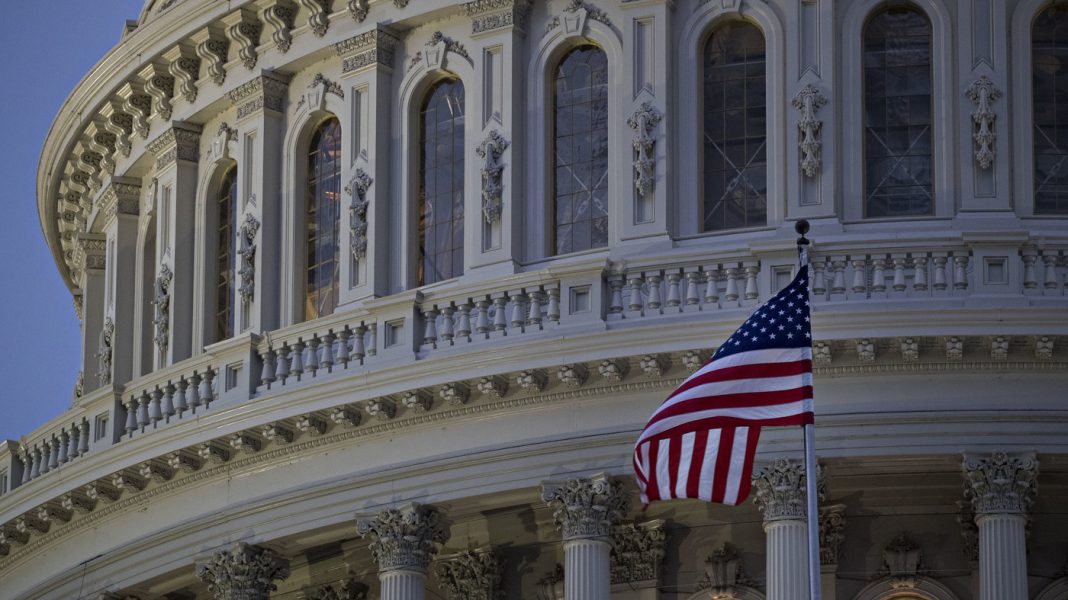
The “Cadillac tax,” an enacted however not yet executed part of the Affordable Care Act, is a 40% tax on the most generous employer-provided medical insurance strategies– those that cost more than $11,200 annually for a private policy or $30,150 for household protection.
Andrew Harrer/Bloomberg Creative/Getty Images.
conceal caption
toggle caption
Andrew Harrer/Bloomberg Creative/Getty Images.
The “Cadillac tax,” an enacted however not yet executed part of the Affordable Care Act, is a 40% tax on the most generous employer-provided medical insurance strategies– those that cost more than $11,200 annually for a private policy or $30,150 for household protection.
Andrew Harrer/Bloomberg Creative/Getty Images.
The politics of healthcare are altering. And among the most questionable parts of the Affordable Care Act– the so-called “Cadillac tax”– might will alter with it.
The Cadillac tax is a 40% tax on the most generous employer-provided medical insurance strategies— those that cost more than $11,200 annually for a private policy or $30,150 for household protection. It was a tax on companies and was expected to work in 2018, however Congress has actually postponed application two times.
And your home, now managed by Democrats, just recently voted extremely– 419 -6— to reverse that part of the ACA completely. A Senate buddy costs is bipartisan and now has an overall of 61 co-sponsors– ample to make sure passage.
The tax was constantly an undesirable and questionable part of the 2010 health law, since the expectation was that companies would cut advantages to prevent the tax. Still, ACA backers at first stated the tax was essential to assist spend for the law’s almost $1 trillion expense and assist stem using what was viewed as possibly unneeded care.
In the occurring years, nevertheless, popular opinion has actually moved decisively, as premiums and out-of-pocket expenses for clients have actually skyrocketed. Now the greatest health problem is not just how much the country is investing in healthcare, however just how much people are.
” Citizens deeply appreciate healthcare, still,” states Heather Meade, a spokesperson for the Alliance to combat the 40, a union of company, labor and client advocacy groups prompting repeal of the Cadillac tax. “However it has to do with their own individual expense and their capability to manage healthcare.”
Stan Dorn, a senior fellow at Households U.S.A., just recently composed in the journal Health Affairs that the backers of the ACA believed the tax was essential to offer the law to individuals worried about its cost, and to cut down on extremely generous advantages that might increase health expenses. However shifts in healthcare, such as the increasing usage of high-deductible strategies in the office, make that argument less engaging, he stated.
” Nowadays, couple of observers would argue that [employer-sponsored insurance] offers most employees and their households extreme protection,” he composed.
The possibility that the tax may be executed has actually been “casting a statutory shadow over 180 million Americans’ health insurance, which we understand, from HR administrators and staff member representatives in reality, has actually included pressure to move protection into higher-deductible strategies,” states Rep. Joe Courtney, D-Conn. Which, he includes, “falls on the backs of working Americans.
Assistance or opposition to the Cadillac tax has actually never ever broken down easily along celebration lines. For instance, economic experts from throughout the ideological spectrum supported its addition in the ACA, and numerous continue to back it.
” If individuals have insurance coverage that spends for excessive, they do not have sufficient skin in the video game. They might be too fast to look for expert healthcare. They might too quickly accede when doctors suggest unnecessary tests and treatments,” composed N. Gregory Mankiw, an economics consultant in the George W. Bush administration, and Lawrence Summers, a financial assistant to President Barack Obama, in a 2015 column in The New York City Times. “Such habits can drive nationwide health costs beyond what is essential and preferable.”
At the exact same time, nevertheless, the tax has actually been bitterly opposed by arranged labor, an essential constituency for Democrats. “Numerous unions have actually been not able to imagine greater incomes, however they have actually been taking more generous health advantages, rather, for many years,” states Robert Blendon, a teacher at the Harvard School of Public Health who studies health and popular opinion.
Now, unions state, those advantages are vanishing, while premiums, deductibles and other cost-sharing relocations are increasing as companies rush to remain under the limit for the upcoming tax.
” Companies are utilizing the tax as reason to move more expenses to staff members, raising expenses for employees and their households,” stated a letter to members of Congress from the Service Worker International Union in July.
Deductibles in medical insurance strategies have actually been increasing for a variety of factors, the possibility of the tax amongst them. According to a 2018 study by the federal government’s National Center for Health Data, almost half of Americans under age 65 (47%) had high-deductible health insurance. Those are strategies that have deductibles of a minimum of $1,350 for specific protection or $2,700 for household protection.
It’s not yet clear whether the Senate will use up the House-passed costs, or one like it.
The senators leading the charge in that chamber– Mike Beat, R-S.D., and Martin Heinrich, D-N.M.– have currently composed to Senate Bulk Leader Mitch McConnell to advise him to bring the costs to the flooring following your home’s frustrating vote.
” At a time when healthcare expenditures continue to increase, and Congress stays divided on numerous concerns, the repeal of the Cadillac Tax is something that has real bipartisan assistance,” their letter stated.
Still, there is opposition to rescinding the tax. A letter to the Senate on July 29 from healthcare economic experts and others argued that executing it, rather, would “assist cut the development of personal medical insurance premiums by motivating companies to restrict the expenses of strategies to the tax-free quantity.” That letter likewise mentioned that rescinding the tax “would include straight to the federal deficit spending, an approximated $197 billion over the next years, according to the Joint Committee on Tax.”
If McConnell does bring the costs up, there is little doubt it will pass, in spite of assistance for the tax from economic experts and spending plan guard dogs.
” When companies and staff members concur in lockstep that they dislike it, there are insufficient economic experts out there to outvote them,” states previous Senate GOP assistant Rodney Whitlock, now a healthcare specialist.
Harvard teacher Blendon concurs. “Citizens are stating, ‘We desire you to decrease our health expenses,'” he states. The Cadillac tax, a minimum of for those impacted by it, would do the opposite.
Kaiser Health News is a not-for-profit, editorially independent program of the Kaiser Household Structure, and is not associated with Kaiser Permanente.














